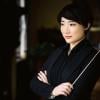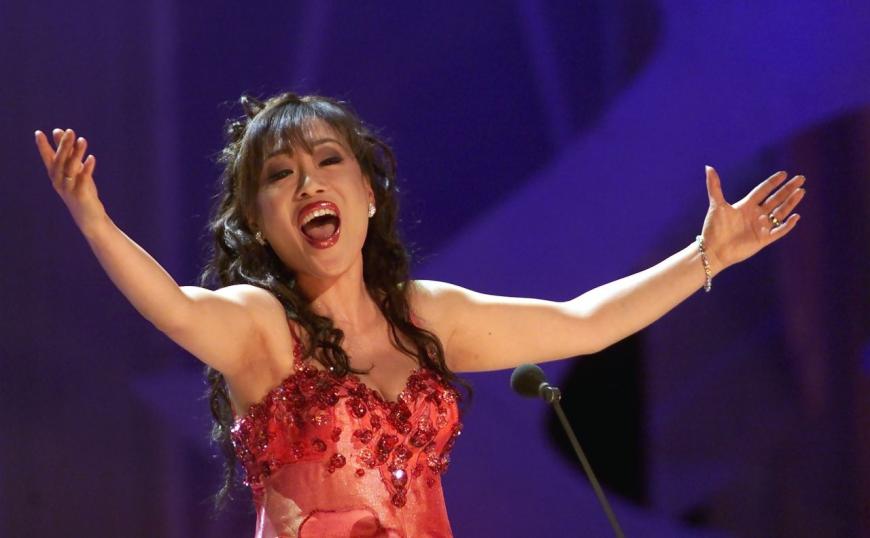
Among “crossover” artists, few have crossed over more often and more successfully than Sumi Jo. The Korean singer, who is the star of the San Francisco Symphony’s “Lunar New Year: Year of the Rabbit” concert on Feb. 5, has “done it all” in a four-decade-long career around the world.
Korean Canadian conductor Earl Lee, music director of the Ann Arbor Symphony and assistant conductor of the Boston Symphony, who leads the concert, says Jo has recorded “pretty much all the art songs in Korea called gagok, and it is these heartfelt, nostalgic, and longing songs that she will be sharing with us.”
Jo says, “The selected songs are very well known in Korea and China and are songs I’ve sung on recent tours in Hong Kong and Korea. The San Francisco Symphony specifically wanted Asian composers’ songs on this program, so I’m happy to be able to introduce these beautiful songs on this occasion.”
The songs include Huang Tzu’s “Three Wishes of a Rose,” Geung-Su Lim’s “As the Spring Approaches Across the River,” Du-Nam Cho’s “Pioneer” (composed in 1933), and Hong-ryeol Lee’s “In the Flower Clouds,” a piece that conveys anticipation of spring.
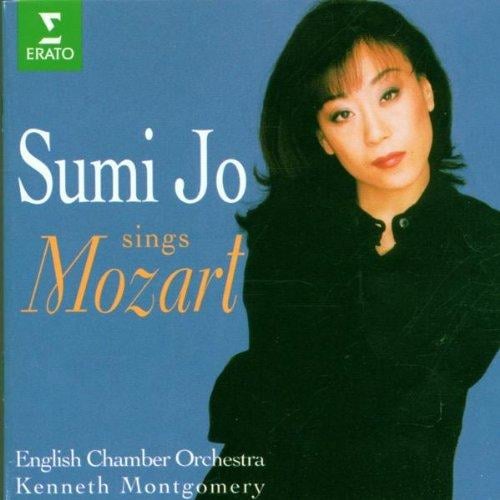
Jo left Korea as a teenager and studied in Italy, singing bel canto arias and later becoming a student of Elisabeth Schwarzkopf, singing Schubert and Hugo Wolf lieder.
From that background came her operatic career, with interpretations of coloratura and bel canto roles from the Queen of the Night in Mozart’s The Magic Flute to title roles in Donizetti’s Lucia di Lammermoor and Bellini’s Norma. Her Richard Strauss roles have included Sophie in Der Rosenkavalier, Zerbinetta in Ariadne auf Naxos, and the Voice of the Falcon in Die Frau ohne Schatten.
And yet, she says, “it was pop music that was my first musical love. From youth, I was entirely in love with American pop music much more than I liked operas or symphonies. My mother was a devoted admirer of Italian opera, and she loved Maria Callas. This means that from a young age, I was inevitably surrounded by classical music. I would go as far as to even say that I felt suffocated in this musical surrounding, being forced too much classical music from a very young age.”
She got over the initial resistance to the classics but never stopped her involvement in “pop and stuff”: She was featured on the soundtrack for the miniseries Mildred Pierce, starring Kate Winslet and Guy Pearce, and recorded the solo album Only Love, which sold more than a million copies. “I kept listening to pop and rock, mostly from the ’70s and the ’80s. For example, I loved the Eagles, ABBA, Earth, Wind & Fire, and so on. I listened to these musicians in parallel with my operatic singing lessons.”
Jo has appeared at major events all over the world, including the closing ceremony of the 2014 Olympic Winter Games in Sochi, the opening ceremony of the 2011 Asian Winter Games in Kazakhstan, and the opening ceremony of the 2011 IAAF World Championships in Athletics in Daegu.
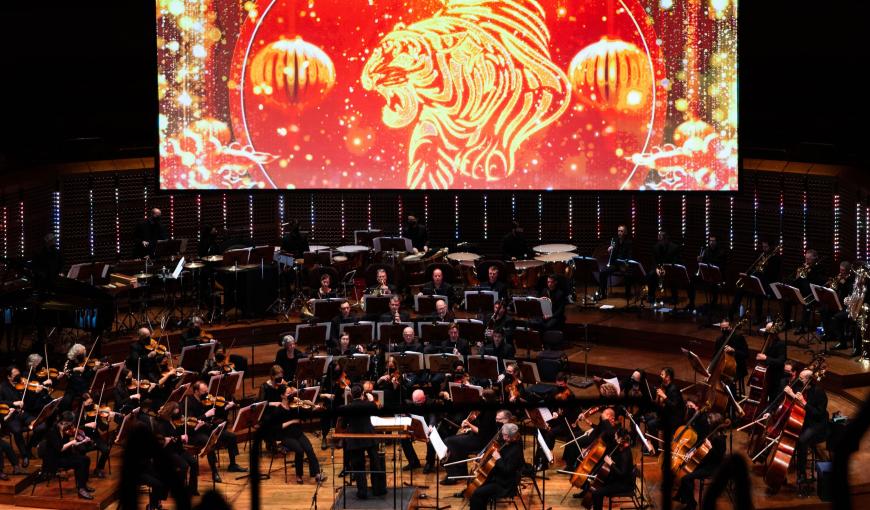
She has also performed with Jonas Kaufmann, Renée Fleming, and Dmitri Hvorostovsky as part of the program for the Olympic Games in Beijing, given a Christmas concert with José Carreras in Barcelona, toured Asia with the Academy of Ancient Music, and performed at a concert at Lincoln Center in honor of Maria Callas. She made her SF Symphony debut in January 1998.
She was also the star in the Seoul Olympic Stadium filled to capacity in 2014 before Pope Francis’s Holy Mass for Peace and Reconciliation. “Singing at the pope’s Mass to convey the message of peace to the people of Korea was a truly special and honorable experience,” she says.
Conductor Lee says of the SF Symphony program, “We wanted to reflect two main ideas for this concert — music that could be fun and entertaining but also meaningful to the Asian communities. We feature Asian composers living in the U.S., who are an integral part of our culture and communities.
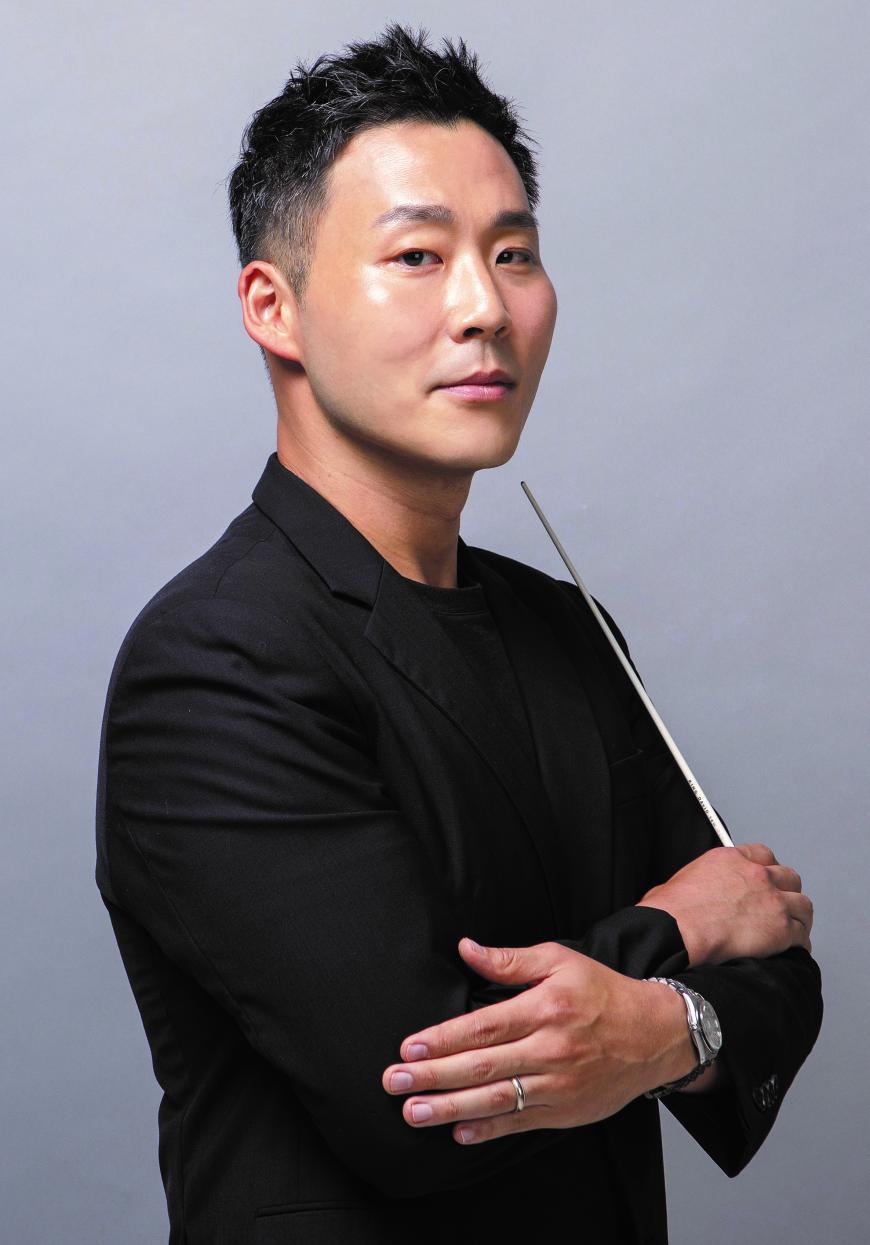
“Two of the programmed orchestral works were written by well-known Chinese composers living in the U.S., Huang Ruo and Zhou Tian. The latter is a good friend who I went to school with at the Curtis Institute of Music and Juilliard. A few months ago, he came to Ann Arbor to visit me and to attend a concert I was conducting. We were having dinner, and I told him that I would be conducting the Lunar New Year concert in San Francisco. I said I wished there were pieces based on the transcontinental railroad, and he replied ‘Seriously? I wrote one already.’
“We will be performing the second and final movements of his work called Transcend; the last movement will close the concert. It is based on the rhythm of Morse code that was sent out across the country at the completion of the railroad, spelling out D-O-N-E.”
The Lunar New Year event begins at 4 p.m. with preconcert lobby festivities open to all ticketholders, featuring entertainment and activities courtesy of a numerologist, a fortune teller, lion and dragon dancers, and students from the Au Co Vietnamese Cultural Center performing music on traditional instruments. (Incidentally, in Vietnam, it’s the Year of the Cat, not the rabbit.)
After the concert, which begins at 5 p.m., there is the Lunar New Year Banquet in Zellerbach Rehearsal Hall, the dinner featuring live music, including performance by Vân-Ánh Vanessa Võ and the Blood Moon Orchestra. Concert and banquet ticket information is available on the SF Symphony’s website.


